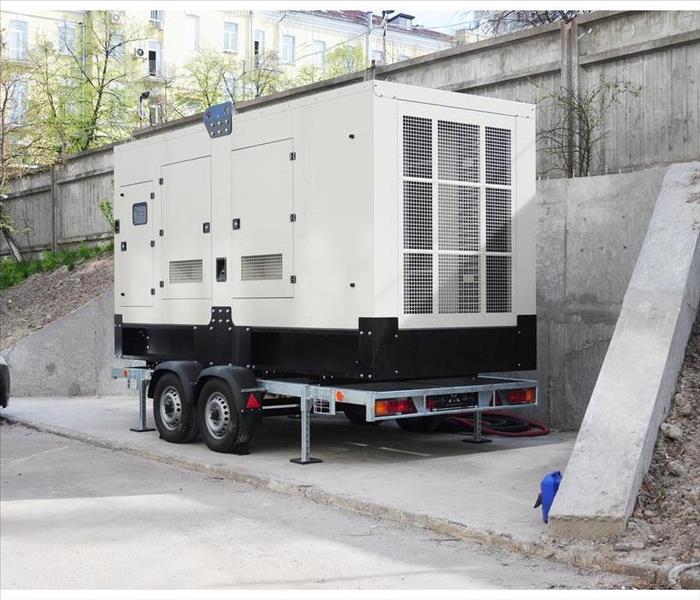3 Commercial Generator Facts
2/1/2022 (Permalink)
3 Facts About Commercial Generators
A generator can provide emergency backup power to a commercial building. Building owners or managers should select a model that provides a sufficient amount of electricity to sustain essential functions. Here are three facts to guide owners and managers toward the right backup power solution for a building in North Aurora, IL.
1. Most Generators Use One of Four Fuel Types
Generators tend to rely on gasoline, diesel, liquid propane or natural gas. Gasoline has about a 12-month shelf life, whereas diesel can last for 18 to 24 months. Liquid propane remains viable for decades. Natural gas generators can be connected to existing pipelines, and many models can also run on liquefied petroleum or propane.
2. Refilling Services Are Available For Some Fuel Types
Owners and managers may want to factor in the ease of refilling fuel. Delivery and tank refilling services are available for diesel and liquid propane. Gasoline is widely available, and many stations have transfer switches and generators that make it possible to pump fuel during a power outage.
3. A Well-Maintained Generator Can Last For Decades
Commercial generators should be regularly inspected and maintained. Owners of standby generators should perform automatic transfer switch exercise cycles weekly, as well as periodic load tests. Charge the battery in a portable unit by powering it up at least once every three months for 30 minutes. These measures can prevent generator problems in the event of an emergency.
Operate a generator outside to prevent carbon monoxide from accumulating in a building. Property owners may want to purchase a cover or specialized enclosure to keep out rain and snow. It is also a good idea to maintain enough fuel to last several days. If a storm or any other type of disaster damages a commercial building in North Aurora, IL, the owner or manager should schedule a consultation with mitigation and restoration experts.





 24/7 Emergency Service
24/7 Emergency Service
